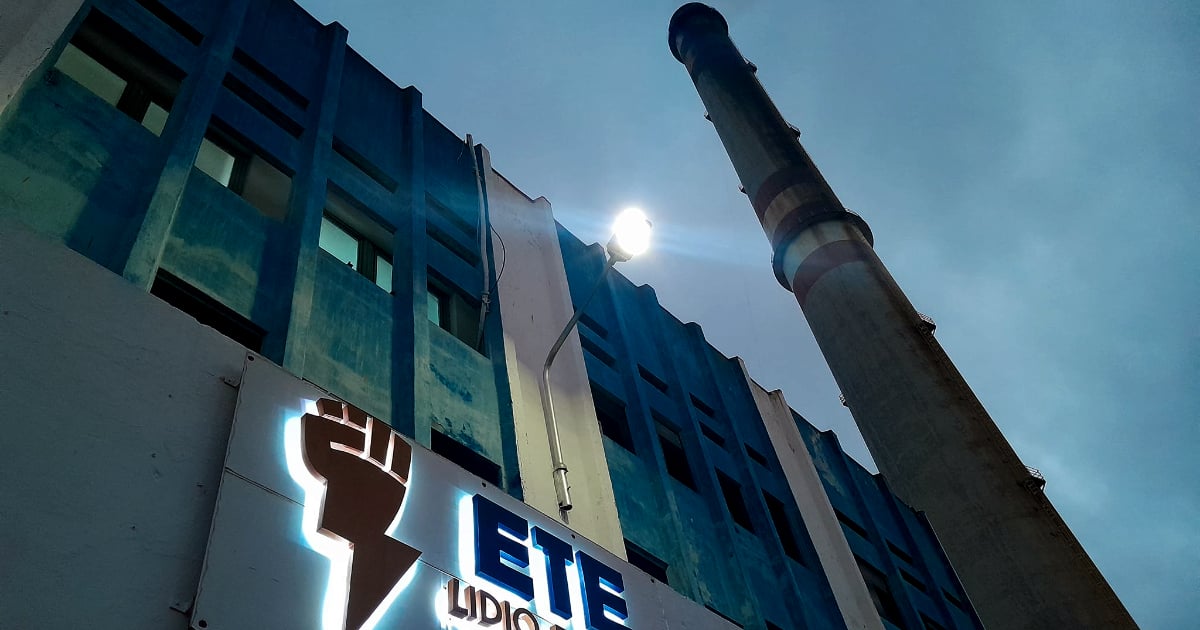The Cuban Electric Union (UNE) has forecasted an improvement in thermal power generation for the upcoming summer, estimating an increase of about 100 MW compared to the same period last year. This assurance was given on Tuesday to Granma by Julio González Céspedes, the UNE’s Director of Maintenance, who predicted that the country’s thermal power plants should contribute an average of 1,200 MW to the national electrical system (SEN) during July and August.
If achieved, this figure would surpass the 1,100 MW reached in the summer of 2023 and the 1,000 MW in the same period of 2022. However, González Céspedes acknowledged that this generation still falls short of the installed capacity of 1,993 MW.
The director explained to the official organ of the Communist Party of Cuba (PCC) the maintenance and repair plans intended to ensure a summer with fewer power outages than last year. He also mentioned that several thermal generation units would continue receiving maintenance after this period, including Unit 4 of the Carlos Manuel de Céspedes thermoelectric plant in Cienfuegos. This unit will undergo an extensive partial maintenance lasting over 130 days to replace parts of the regenerative air heaters (CAR) and boiler economizers.
Additionally, he reported that Block 1 of the Lidio Ramón Pérez CTE in Felton underwent light maintenance for 25 days, including boiler washing, replacing pipes in a critical sector, and changing damaged CAR baskets, returning with a contribution of 230 MW. For the summer, this CTE is expected to supply between 215 and 225 MW.
However, on Thursday, news broke of a rupture in the boiler tubes of Unit 1 at Felton, forcing its disconnection from the SEN. Energy and Mines Minister Vicente de la O Levy had previously boasted that the 25-day light maintenance had successfully cleaned the 22,000 tubes that cooled it. The incident, which required a minimum three-day shutdown, adds to similar issues at other thermal power plants in the country, which suffer breakdowns shortly after completing repair or maintenance cycles, like Unit 6 in Nuevitas.
Despite UNE officials’ insistence that these occurrences are "normal," many experts fear that the interventions by Cuban technicians and operators may not be entirely effective or that the information provided may not reflect reality. These constant "repairs and maintenance" could be a pretext to disguise the extent of the country’s energy crisis.
González Céspedes noted that although the Guiteras plant has gone 13 years without major maintenance, it is expected to reach an average power output of 250 to 260 MW this summer. This will be possible thanks to a four-day shutdown before July to clean the CAR baskets, which are frequently fouled by the high-sulfur Cuban crude oil used as fuel.
From one promise to another, Cubans see time pass amid “light flashes.”
In late August 2023, the Cuban government boasted of an improvement in generation capacity during the summer. Additionally, it claimed that the UNE was designing "a set of actions" to ensure a balance with demand in the summer of 2024, according to a report in the state-run Trabajadores newspaper.
Last May, the UNE announced that power outages would increase during June due to maintenance work on several Thermoelectric Power Plants (CTE). "As has been reported from January to June, maintenance activities are being increased at thermal plants, Energás, and distributed generation to be ready for the months of highest electricity consumption and demand, which are July and August, also the population’s vacation months," the entity explained in a Facebook post.
The state company also stated it would "complete the maintenance plan by the end of June" to minimize disruptions in the summer. However, it clarified that there would still be outages in July and August "if there are unforeseen shutdowns of generation units."
At the end of that month, President Miguel Díaz-Canel announced what the Cuban people had feared since the power outages worsened: there could be no guarantee that the summer months would pass without disruptions in electrical service. "We will have extended maintenance until June to minimize the inconvenience of power outages in the summer, especially in July and August," he said.
Furthermore, in mid-April, the Ministry of the Interior (MININT) announced that it expected protests in Cuba this summer and blamed the United States and its politicians for inciting public disorder on the island amid the current energy crisis. "The United States is launching new attempts to 'heat up' the streets during the summer, taking advantage of the country’s complex situation, according to the latest interests of its intelligence agencies to generate attacks against Cuba, in what they call Operation 11.7.24," MININT said on the social network X.
The repressive arm of the Cuban regime considered that the alleged attacks would "prioritize the national electro-energy system, due to its impact on people’s quality of life."
Understanding Cuba's Energy Crisis
In light of the ongoing power issues in Cuba, many are seeking answers. Here are some frequently asked questions and their responses.
What is causing the frequent power outages in Cuba?
The frequent power outages in Cuba are primarily due to the aging infrastructure of the country's thermal power plants and the lack of effective maintenance. Additionally, the economic crisis and fuel shortages exacerbate the problem.
How is the Cuban government addressing the energy crisis?
The Cuban government has planned various maintenance and repair activities to improve power generation. However, these efforts have been met with skepticism due to recurring breakdowns and insufficient improvements.
Are there any long-term solutions being proposed?
While the UNE has mentioned plans for more extensive maintenance and upgrades, there has been no clear long-term strategy presented to comprehensively address the energy crisis.
